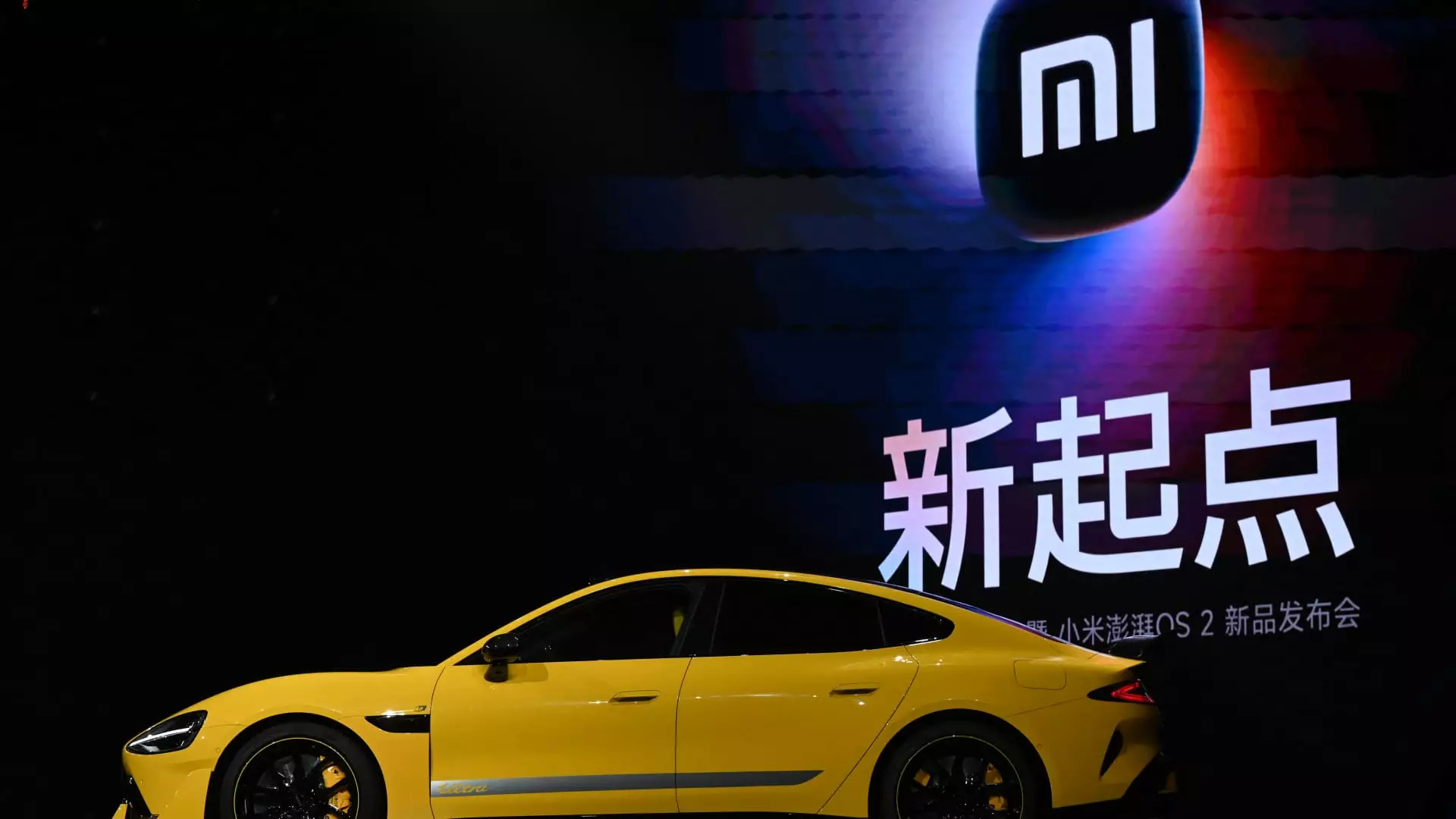In an environment characterized by rapid innovation and fierce competition, Xiaomi has made waves in the electric vehicle (EV) segment with the promising launch of its SU7 model. With more than 20,000 vehicles delivered in October alone, the company demonstrates a determined shift from its conventional tech roots into the automotive scene—an industry dominated by established players like Tesla and emerging rivals such as Xpeng and Nio.
Founded in 2010, Xiaomi initially garnered fame through smartphones and smart home appliances, showcasing a flair for accessibility and user-centered design. However, in 2021, the company unveiled its venture into electric vehicles, signaling the onset of a transformative chapter. The SU7 marks their entry into a challenging market and illustrates how swiftly Xiaomi aims to position itself as a vital player in the electric car space. The ambitious target to deliver an astounding 100,000 SU7 vehicles by November is a testament to the company’s commitment to scaling its production capabilities and leveraging its existing technological expertise.
Xiaomi’s competitiveness stands out when paralleled with other key players in the market. While Xpeng, Nio, and Tesla took years to achieve similar delivery milestones, Xiaomi’s aggressive timeline nurtures a perception of resilience and adaptability. Their ability to deliver over 75,000 units thus far underscores a rapid scalable production that is critical for sustained growth in the automotive industry.
Xiaomi entered the scene with a striking pricing strategy—the basic model of the SU7 was introduced at approximately $4,000 less than Tesla’s Model 3, which has been a significant move in a price-sensitive market like China. This strategy has fostered initial interest and positioned the SU7 as an appealing option for savvy consumers who are increasingly considering alternatives to established brands. However, the competition quickly responded; shortly thereafter, Tesla lowered its prices, further igniting the competitive landscape.
The release of the high-end SU7 Ultra, with a base price of around $114,304, expands Xiaomi’s portfolio to include a premium option. Early demand has been promising, with over 3,600 preorders received within just ten minutes, highlighting a growing appetite for premium electric vehicles among consumers. These figures signal Xiami’s potential to capitalize on both the budget-conscious segment and the luxury market.
The Broader Implications of Xiaomi’s Move into Electric Vehicles
The strategic foray into the EV market by Xiaomi accommodates a broader industry shift towards electrification as both consumer preference and regulatory pressures tilt away from traditional fuel vehicles. Analysts suggest that Xiaomi’s aggressive entry could disrupt existing paradigms and accelerate the pace of innovation within the EV segment.
Meanwhile, reports of Xiaomi’s SU7 Ultra prototype achieving a record time on the Nürburgring lend an air of legitimacy to its engineering capabilities. This success could enhance brand prestige and reflect a commitment to performance—which is invaluable in an industry where innovation and brand loyalty are pivotal.
Examining the competitive landscape, Xpeng’s record of over 20,000 units delivered in September illustrates an emerging pattern of rapid growth among Chinese manufacturers. Yet, Nio’s struggle to maintain similar momentum highlights the inherent volatility and challenges therein. Xiaomi’s foray into the market not only poses a competitive threat but could also catalyze more aggressive pricing and innovation among existing players.
As Xiaomi advances further into the EV arena, the company has set its sights not only on domestic success but also on long-term international growth. Though Xiaomi has stated that an overseas launch will require additional time—estimated at two to three years—its existing successes in China could lay the groundwork for future expansion.
Moreover, bolstered by favorable market forecasts and innovative product launches such as the flagship Mi 15 smartphone, Xiaomi appears poised to strengthen its position both in the automotive and technology sectors. With high expectations for sales ramp-up, industry analysts are beginning to adjust their outlook favorably, reflecting heightened confidence in Xiaomi’s growth trajectory.
The burgeoning journey of Xiaomi into the EV sector is indicative of where traditional technology firms might be headed as they navigate the evolving demands of a sustainable future. With aggressive production goals, adaptive pricing strategies, and aspirations for innovation, Xiaomi may well emerge not only as a participant but as a formidable contender in the electric vehicle arena.

